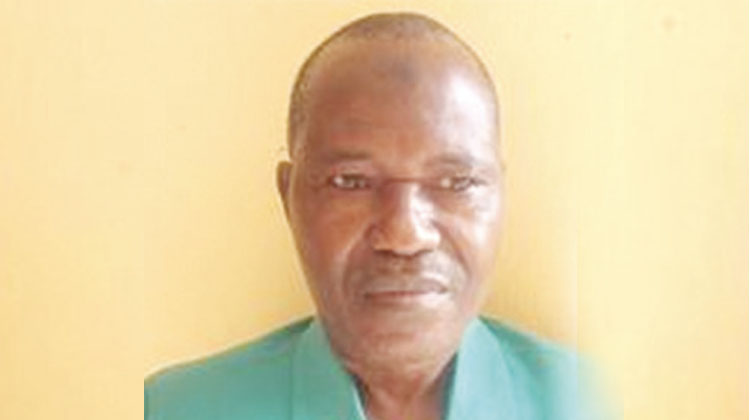
One public servant told me at a gathering that he pitied the economists from the ivory towers who pontificate on Nigeria’s economic growth and development. He explained that they know more of theories than practical and the theories are basically for foreign lands than developing countries like Nigeria. Two or three mutually exclusive reports on practical economics in Nigeria in the last two weeks seemed to convince me that he was right. Contrary to my opinion that every president and the vice who, incidentally, oversees the Nigerian economy, should be allowed to go through a special class in Principles of Economics, the tutorial given to them by civil servants could be more appropriate than the brand of economics I had in mind. That should be tutorials on How to live big and well thereafter. It is pure practical economics on how to help oneself to the national purse for wealth sustainability or literally Economics of embezzlement for better life.
The first incident was the arrest of the suspended Accountant General (a civil servant) of the Federation, Ahmed Idris, for fraud of N80 billion! As that report was still unfolding, another report came to indict a former Niger Delta Development Commission boss, Nsima Ekere, (public servant) over N47 billion fraud! Then came the big news that manufacturers could not get forex to import inputs for production because politicians were buying dollars for primaries. What else could be more damaging than an attack on the domestic economy from within and without? While the Minister of Finance was making noise on shortfall in revenue to the federation account and attaching it partly to effects of tax relief which had been predicted, she did not know that there had been under-reporting from the Accountant General’s office. Only God knows what had happened to revenue figures at the lower levels in the ministry before he (Ekere) got to the topmost level!
On the other side, while the Governor of the Central Bank of Nigeria, Godwin Emefiele, was lamenting on fall in the exchange rate due to activities of one bureau de change outfit and low return from oil sales, he did not know (probably he knew as one of them) that the pressure on exchange rates was from politicians whose bribery actions have moved to the next level (a lá All Progressives Congress).
Theoretically, we define money in an economy as an item that is generally accepted as a means of payment and for the settlement of debts. This implies that the dollar is not money in Nigeria and the demand for it should be very low or inconsequential. The politicians have dollarised the Nigerian economic space such that the demand for it locally unexpectedly pushed the exchange rate to over N600 to $1 and disrupted domestic production to the extent that the industrial sector has become very sick! Let us have a digression.
The civil servant, who said Nigerians teaching economics are just theoretical, can be 95 per cent right when we use the Nigerian prism. One thing about economics within its framework is that it recognises abnormal situations. Hence there exist abnormal demand and supply curves to capture situations that go contrary to theoretical and practical norms. Most situations in Nigeria are across the fence. They are on the abnormal side.
One of Nigeria’s highly respected economists included a chapter Economics of Corruption in his classic book entitled, Practical Microeconomic Analysis in African Context. He identified education as one of the major factors in his model of demand for corruption. He posited that an educated person is usually productive in accordance with the standard human capital theory. Being productive, he argued, would make the person earn enough to escape absolute poverty which could tempt him/her to be corrupt. Furthermore, he posited, “the status effect of education operates through the psychological consciousness of the value of one’s professional status.” Ceteris paribus, he concluded, the more educated the individual, the more status-conscious he might be and be prevented from engaging in corruption! I know that both Accountant General Ahmed Idris and ex-NDDC boss, Ekere, are professionals and highly educated.
Nigeria’s factors throw economics theory into the dustbin of practical irrelevance. Fortunately, economic theory also recognises abnormality with respect to money. The desire to earn money does not obey the law of diminishing marginal utility which states that the more of a commodity you possess the less the desire to have more or the less the value attached to it. With money, you want to have more all the time. That is why money is regarded as the root of all evils, though I do argue that it is also a source of open happiness. I know the difference in my mood whenever I receive my salary and when I am expecting the salary. Of course, there are people who don’t know if salary is paid or not, though they are salary earners. Why should I have N1 billion or N80 billion and still worry about salary?
Whatever you think about the existence of the Economic and Financial Crimes Commission and Nigeria Extractive Industries Transparency Initiative, they are blessings to this country. NEITI is known to tackle the government on deeds and misdeeds, while EFCC tackles individuals with financial misconduct. The activities of the EFCC over the years have resulted in high and low-profile exposé of economic mismanagement and blatant corruption by politicians, civil and public servants. It is a very hard assignment and we need tough people to handle the task. All the past heads of the commission left office in circumstances indicative of corruption fighting back.
I suspect that Magu, the immediate past head of the EFCC, was digging into the activities of powerful mafia in the current government and immediate action had to be taken to suspend him. The fact that Justice Ayo Salami’s report remains hidden after six months of submission and the recent promotion of the same man is suggestive of some concealed truth. But his predecessor left office in the same manner. The present EFCC boss should know that we appreciate their jobs. The reports on the Accountant General and the ex-NDDC boss should be clear to the technocrats in government, like the Minister of Finance, that there has been under reporting of revenue to the government’s coffers with the extras going into private pockets of civil and public servants from top to bottom.
Does the minister know that Nigeria made about $206.06 billion from oil exports only from 2015 to 2019? Does she know that the country has been making more money from gas exports than oil exports in recent years? Reports from even local newspapers show that revenue from gas export and feedstock sales to the NLNG was $243.57 million in the first quarter of this year (2022) and these surpassed receipts from oil exports by 259.4 per cent. Reports have always been on oil rather than on oil and gas.
For exports, the more accurate sources of data should be from international statistics and ministers holding offices that deal with international commodities must be interested in information from these sources to cross-check under-reporting from home sources. Such underreporting destabilises budget plans and execution of plans with negative consequences on achieving macroeconomic goals of economic growth, employment, price stability, income distribution, the balance of payments equilibrium and sustainable development. Maybe the underreporting of revenue is responsible for the continuous resistance of government to implement funding of education and subsisting crisis in the sector.
The shift of using naira to dollar in bribery during political activities should not be allowed to take roots. The action should be condemned and possibly probed. The destruction of national currency is like destruction of the national flag of a country by those expected to uphold the dignity of the nation. I am sure the Americans would be wandering how Nigerian politicians came about the magnitude of minted dollars without the connivance of the central bank of the country. The adoption of foreign currency for domestic payment of any kind implies a loss of confidence in the local currency and, by extension, in the medium to long term, a loss of confidence in the economy. Given these situations, it is becoming increasingly clear that the civil cum public servants and the politicians, by omission or commission are responsible for the persistent Nigerian economic quagmire.
Copyright PUNCH.
All rights reserved. This material, and other digital content on this website, may not be reproduced, published, broadcast, rewritten or redistributed in whole or in part without prior express written permission from PUNCH.
Contact: [email protected]





